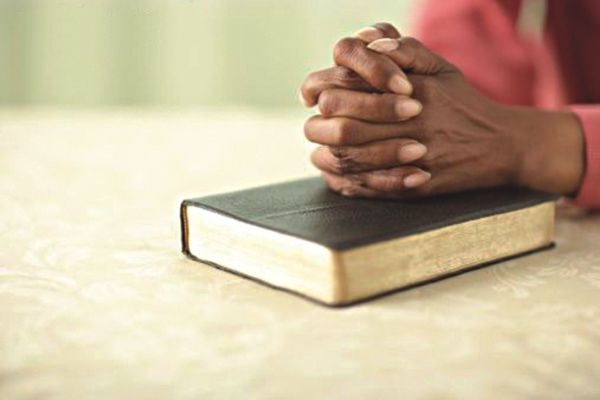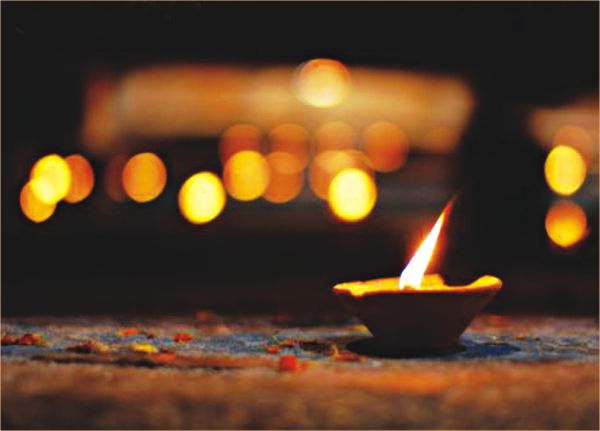
Inside
Original Forum |
| The Way Out? -- Ali Riaz |
| Rule by Brute Majority? -- Dr. Mizanur Rahman Shelley |
| Movements, Motion, Motives: Students in politics -- Shahana Siddiqui |
| Can Parliament be more than a Rubber Stamp? -- Saqeb Mahbub |
| Politics of Intolerance and Our Future -- Ziauddin Choudhury |
Kony 2012 and the New Age of
Social Media in Political Action --- Olinda Hassan |
The Dance between Education, Politics and the State --- Shakil Ahmed |
New Leadership - Is it forming? -- Shahedul Anam Khan |
Confrontational or Infantile Politics? -- Syed Fattahul Alim |
| Politics of Religion and Distortion of Ideologies -- Kazi Ataul-Al-Osman |
| Politics of Judicial Appointment --Ahmed Zaker Chowdhury |
| Priority of the Media: Profit,
politics or the public? -- M. Golam Rahman |
| Mujibnagar and Our Twilight Struggle --Syed Badrul Ahsan |
Politics of Religion and Distortion of Ideologies
Pseudo-religious vendetta must be rejected and the founding principles of our nation embraced for our democracy to thrive, argues KAZI ATAUL-AL-OSMAN.
The emergence of Bangladesh in 1971 bestowed the long-awaited ideologies of nationalism, democracy, socialism and secularism and indicated the exodus of the conception of religion-based nationhood which eventually led to the delegitimisation of the earlier "two nation theory" in 1947. Religion was used as an impregnable tool for the construction of Pakistani nationhood. Conversely, Bengali language and culture which had a secular orientation were the sole component of the then East Pakistan. The political history of Bangladesh was revitalised in 1971 on the basis of secular characteristics that shaped the substratum in the formation of Bangladesh as an independent nation. It was the people of Bangladesh irrespective of religion, caste, creed and gender that galvanised the shape of a nation free from economic, political and above all religious discrimination. The beliefs that drove the vigour of the Bengalis during the liberation war in 1971 were economic and political accompanied by a strong secular identity, where the Bengali language and cultural identity were at their nucleus. The people of Bangladesh in 1971 were motivated for the liberation struggle not only because of the issue of economic exploitation and political marginalisation but to establish their identity as "We are Bengalis/Bangalees". The then West Pakistani leaders always used Islam not as a religion of peace but as a weapon to degrade and dominate the then East Pakistanis and thereby created a hierarchy of "better Muslim" and "frail Muslim".
 Thomas Northcut/Photodisc/Getty Images
Thomas Northcut/Photodisc/Getty Images
In 1972 the very first draft Constitution of Bangladesh crystallised these ideologies of nationalism, democracy, socialism and secularism and negated religion-based politics. The basis of the nationalism of Bangladesh derived from its linguistic and cultural identity. Article 9 of the Constitution thus defined nationalism as: "The unity and solidarity of the Bengalee nation, which, deriving its identity from its language and culture, attained sovereign and independent Bangladesh through a united and determined struggle in the war of independence, shall be the basis of Bengalee nationalism". Secularism as the foundational principle was incorporated within the constitutional framework and one of the basic features of the Constitution. Paradoxically, since our independence, religion in camouflage of so called theocratic public sentiment has more or less played an imperative character in shaping the basic features of statehood as well as the flawed character of our political parties. The long cherished dream of a secular nation that we, the Bengalis thrived for, shattered into a nightmare.
If we deeply analysed the object of our political leaders' reasoning in giving Islam 'Constitutional Status' since the 1975 era, it is evident that the sole purpose for such insertion was either to keep a hale and hearty relation with the Middle Eastern Islamic countries or to gain political advantage from the public in general. Since 1975, whether Bangladesh was under a military regime or democratic regime, religion was always used entirely by successive governments to gain either international support or to manipulate the religious sentiment of the public in general. The end result was the desecration of the basic ideologies by way of amending the Constitution on various occasions. Such insertion of provisions relating to religion within the constitutional framework gradually shifted our ideological conceptions based on which we started our journey as a nation and further created a discrepancy among different provisions within the Constitution. It is pertinent to mention that the politics of recognition of Bangladesh as a sovereign Islamic country by Saudi Arabia added a new dynamism in the internal politics of Bangladesh. It acted as a restitution of faith on the Bengali Muslims which was symbolically defining. Consequently various provisions pertaining to the ideologies of secularism, socialism and nationalism that were incorporated in the original Constitution were amended by the then President Zia-ur-Rahman and incorporated Article 25(2) that gave primacy to relations with Muslim countries. The incorporation of "Bismillah-Ar-Rahman-Ar-Rahim" in the Preamble by way of amendment by the military regime was solely diplomatic in its nature, but in the political sphere its echo was felt in a very cynical manner which consequently had long term politico-social implications. The ramification of the religious denomination in the Constitution was the alteration, amendment and deletion of various provisions of the 1972 Constitution relating to the ideology of secularism, socialism and nationalism. The basic features of the Constitution were further altered during the military regime of the then President Hussain Muhammad Ershad by the insertion of Article 2A by declaring Islam as the state religion. The state gradually shifted its reliance on religion in the formation of identity and political discourse. Bangladesh that once agitated against the political use of religion and had fought for the establishment of cultural and linguistic identity entangled herself into the debate on religion against secularism and the original characters based on which the nation emerged faded. The irony of that particular period was the calculated assassination of the basic structure of our Constitution.
Perhaps, one of the most despicable attacks was against the principle of 'secularism' that was incorporated within the constitutional framework with an object to negate the tyrannical use of religion by the state-run authorities. Gradually this particular term was politicised due to the various international pressures and due to the political change which came after the assassination of the Father of the Nation, Sheikh Mujibur Rahman. The concept of secularism was always used by the rightists and religion-based political parties as an apparatus against the leftists as well as moderate political parties in order to gain political advantage. The espousal of secularism and socialism was often measured as a compromise with our neighbouring countries in particular with India, despite the fact that it was a reaction to a religion-based state. From 1975, subsequent to the brutal assassination of the Father of the Nation Sheikh Mujibur Rahman, all the succeeding governments not only altered the structural mechanism of the Constitution but also segregated the ideological values of our society by way of political propaganda. Undoubtedly the presence of religion, be it Islam, Hinduism, Buddhism or Christianity within the society has immense sociological impact on every person individually. However, the people of Bangladesh have never relinquished their primeval cultural and customary ethos for the reason of being religious followers/believers. Even the ordinary masses in general have never accepted a society based on religious communalism. Ironically, most of the political parties in Bangladesh pigeonholed the concept of secularism as synonymous with ideologies based on atheism, blasphemy, scepticism, anti-Islamisation and so on. This propaganda succeeded more or less because of the lack of the understanding of these ideologies as well as the failure on the part of our intellectuals as well as politicians to take a positive approach by conveying the message to society that these ideologies were the aspirations based on which we fought for our independence.
 Brigida Brito/Flickr/Getty Images
Brigida Brito/Flickr/Getty Images
Until recently, the Apex Court of Bangladesh in Bangladesh Italian Marble Works Ltd vs. Government of Bangladesh and others (Writ Petition No.6016 of 2000 reported in BLT 2006, Special Issue) famously known as the 5th Amendment Case nullified legality and constitutionality of the martial law regime during the period of 1975-1979 and further observed that "the change of the Secular character, negation of Bengali Nationalism, negation of Rule of law, ouster of jurisdiction of Court, Court's jurisdiction" obliterated the basic character of the Constitution. The original Constitution in particular provisions relating to the basic ideologies of secularism, socialism, democracy and nationalism were revived through the judgment in 5th Amendment Case. While emphasising the importance of the concept of secularism in particular to Article 12 the High Court in the 5th Amendment case held that:
"Secularism means both religious tolerance as well as religious freedom. It envisages equal treatment to all irrespective of caste, creed or religion but the State must not show any form of tilt or leaning towards any particular religion either directly or even remotely. It requires maintenance of strict neutrality on the part of the State in the matters of different religions professed by various communities in the State. The State must not seem to be favouring any particular religion, rather, ensure protection to the followers of all faiths without any discrimination including even to an atheist. This is what it means by the principle of secularism."
Finally, through the Constitution (Fifteenth Amendment) Act, 2011 the Preamble of the Constitution included the fundamental principles of democracy, socialism, secularism and nationalism, earlier adopted by the Constituent Assembly in 1972, have been revived. Equal status and equal right in practice of the followers of the Hindu, Muslim, Buddhist, Christian and other religions have been ensured.
Nonetheless, both the judiciary as well as the State adopted a narrow margin of appreciation while dealing with provisions relating to religion as both the judiciary and State were silent on how these two different conceptual codes of belief and ideology will run in parallel. Institutionalisation of a particular religion with constitutionally privileged prerogatives allows people to negate the idea of uniformity and indivisibility as a nation. In a democratic society undeniably individuals and all religious communities must have complete freedom to practice, follow and propagate their religion as part of their fundamental rights. No religion, let alone Islam, ever ordains any other religion inferior or ignominious by a State authority by way of subjugating other religions. The object of a constitution is not to describe the tenets of a particular religion but is an apparatus creating the high institutions of the Republic and its relationship with its people. A constitution upholds and guarantees such dignity to the people of the Republic with its own rights and also its obligations to the Republic in a broader sense.
The ideological and religious dichotomy has always created and still creates murkiness among the general masses in Bangladesh. In a multicultural pluralistic society, the subjugation of national ideologies and the hegemony of religion to gain state power always bifurcates the common view of the ordinary masses and defies uniformity and inalienability as a nation. When religion becomes a modus operandi to gain political interest then the true sense of democracy turns into a mere rhetoric or more or less goes back into the primordial concept of 'Papacy' or 'Papal Authority' as propounded by Plato's nationhood under the 'Philosopher King'. Over the last two decades of the formation of democratic regime we are still struggling to epitomise our identity as a nation and the duty lies upon the society more than on politicians to rejuvenate our basic ideologies by way of eschewing pseudo-religious vendetta for a better democracy. Unless, there are uniform ideologies prevailing within the society and civil society, and intellectuals and politicians come to a common platform on the basis of those uniform ideologies, democracy will always be in disarray.
Kazi Ataul-Al-Osman is Research Associate, Dr. Kamal Hossain and Associates.